Financial Wellness: How to Manage Your Money
Last Updated
January 4, 2023
Written By
Suzanna Wojnowski
January was Financial Wellness Month but that doesn’t meant you can’t be financially healthy all year long! There’s never a better time than the present to reflect on your current financial wellbeing, and establish savings goals for the new year. You may be asking yourself, “What is financial wellness?” Financial wellness is the ability to live within your means and manage your money in a way that gives you peace of mind. In the United States, money is the number one stressor for adults ages 18 to 57. With that being said, Family First is taking steps to make sure our members feel financially secure. Balancing your income and expenses, staying out of debt, and saving for the future are all key components to both financial and emotional security.
Being financially “well” comes down to four main attributes; borrowing, spending, saving, and planning. To help you better understand how these components contribute to your financial wellbeing, we have compiled our best tips and examples to guide you in the right direction.
Borrowing
Borrowing plays a huge role in your financial wellness. Taking on too much debt can lower your credit score, making it challenging to pay off debt, and puts your budgeting skills to the test. Here are a few tips for being a responsible borrower!
- Aim to make your payments on time
While this may seem like a given, making sure you pay your bills on time is crucial to building a good credit score. Lenders and service providers look at your score to determine how likely you are to repay your debt and make timely payments. When the time comes to apply for a loan, such as an auto loan, mortgage, or student loan, you want to make sure you have strong credit, not only to get approved, but to get a low interest rate.
2. Watch your debit-to-income ratio
Your debt-to-income ratio (or DTI) compares the amount of money you owe to the amount of money you earn. A good benchmark to strive for is a DTI ratio of around 30%. This means that nearly a third of your earnings are going towards debt while the rest (∼70%) are your retained earnings.
3. Consolidate high-interest debt
If you have multiple lines of credit, the numerous high-interest rates on these cards could be racking up your payments, making it nearly impossible to pay them off. Taking out a personal loan could be beneficial as they tend to have lower rates than credit cards. You can also do a balance transfer and move your debt to a lower-interest-rate credit card.
4. Change your due dates
If there is a specific time during the month when you feel more financially stable, like after you’ve been paid, ask your lender if you have the option to change your loan’s due date. This could help you pay your bills on time and in full each month!

Spending
The way in which you spend your money directly affects your financial security. By observing how you are currently allocating your funds, you can improve your spending habits. Try some of the tips below to improve your spending habits!
1. Track your expenses
When you keep tabs on all of your expenses you will be able to notice any habits or purchases that seem to be draining your budget.
2. Live within your means
Once you’re aware of what’s coming in and what’s going out, you can differentiate between what you need and what you want. This will help you put money towards your needs first, and then what’s left can be budgeted towards your wants.
3. Invest in quality insurance
When you purchase a good plan, you put yourself in a better position to handle life’s unexpected events. Investing in quality dental, health, life, auto, and home insurance allows you to avoid the pricey bills that can often be associated with these.
4. Limit eating out
Eating out at your favorite restaurant, going to coffee shops, and getting fast food can add up fast. By cooking at home more frequently and limiting these expenses, you can significantly reduce your spending – plus it’s healthier for you!
Planning
Individuals who are financially sound typically have their finances well organized. Taking some time to create a clear and concise plan for your money pays off and can help reduce stress.
- Make note of all your financial activity
This includes both fixed and flexible expenditures, your projected earnings for the year, your savings goal, and any possible investments. Having this in front of you will help you make smarter financial decisions.
2. Set an annual reminder to check your credit report
Credit reports give you a detailed record of your financial history and list every item in your credit history that affects your credit score. These detailed reports will give you a good idea of how well you are doing with paying off debt and can help you establish new goals.
3. Use a debt reduction strategy
A debt reduction strategy can help sort out how you make your loan payments. The Interest-Rate Method is where you pay off your debt with the highest interest rate first. The Snowball Method is where you pay off the debt in order of the smallest to largest payments.
4. Contact a financial counselor
If you struggle to manage your finances on your own or need help creating a successful budget, take advantage of a financial counselor. Their job is to help you reach your financial goals without all the stress falling on you!

Saving
Saving can often be challenging because you don’t reap the benefits right away. Here are some great opportunities to help you save that will pay off in the long run.
- Create an emergency fund
Getting hit with unexpected expenses, such as medical bills and car repairs, can really put a dent in your earnings if you don’t plan for them ahead of time. Try to regularly put small amounts of money away to be prepared for such instances.
2. Set up automatic transfers
When you get paid, have money automatically transferred into a savings account rather than a checking account you have easy access to. Saving money is much easier when it’s not so easily accessible!
3. Contribute to an IRA or 401k
Both of these accounts have tax benefits that will help you save money for your retirement.
4. Start a 529 plan
If you have a child or are planning on having one in the future, consider creating a 529 plan as it can help you cover expensive educational costs like tuition, books, food, and more.
5. Make a wish list
Everyone has things that they’re saving for. To plan for these future purchases, make a list of your “big” and “small” investments with their costs. Be sure to include both short and long-term items so you can assemble them into a timeline.
We hope you found this information useful and that it helps you save money in 2023! For more information or help reaching your financial goals, contact or visit any of our Family First branches or explore the additional links below!
Author

Suzanna Wojnowski is a senior at SUNY Fredonia attaining her degree in Business Marketing. She is a Rochester, NY native and graduated from Eastridge High School in 2019.



